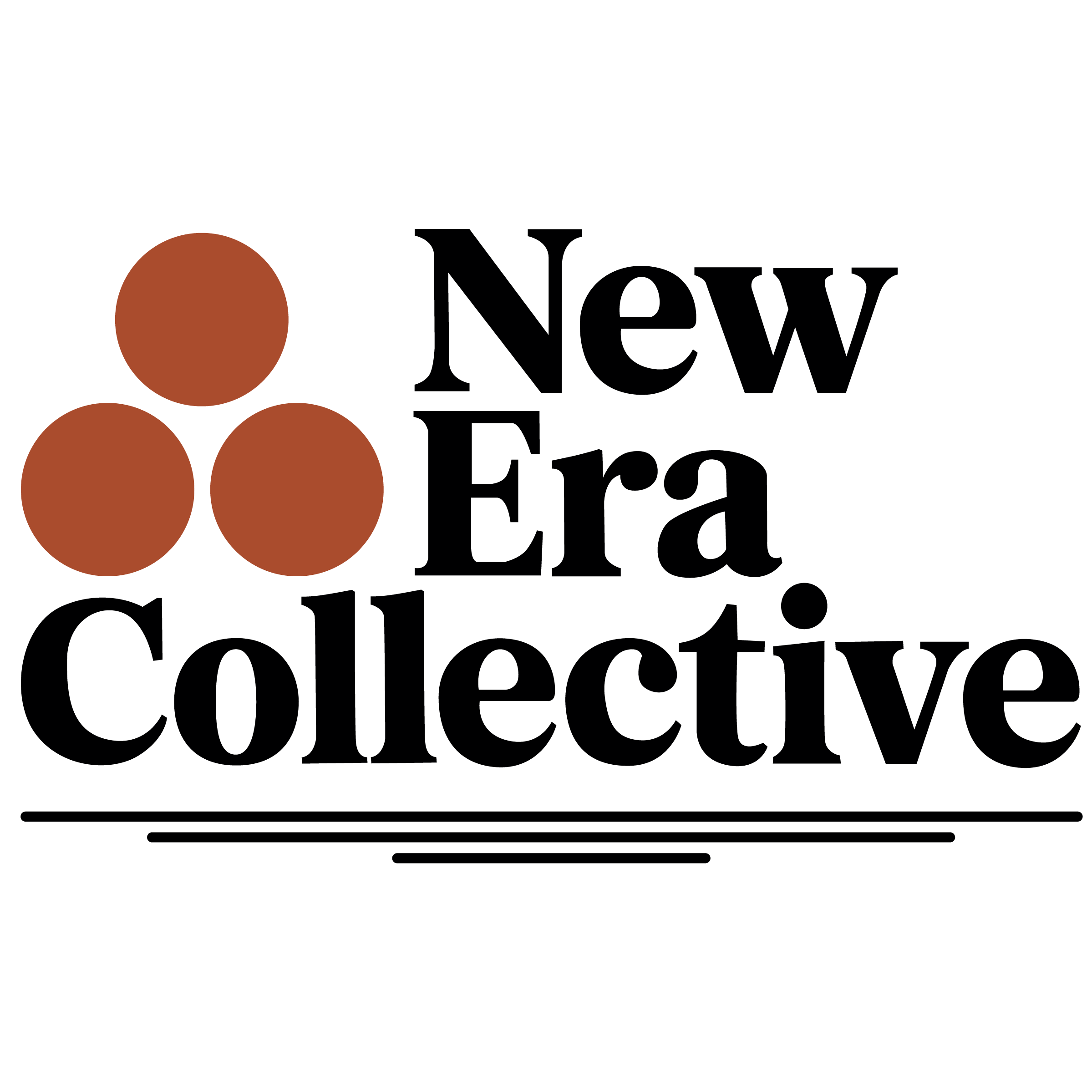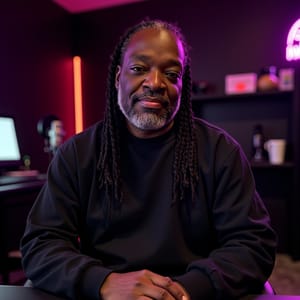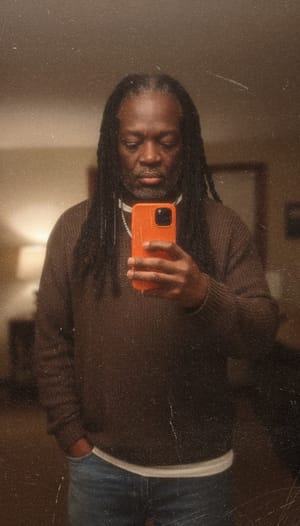From the Front Porch
Saturday morning, 9:47 AM. Three years ago.
I'm sitting in my kitchen with a Dr. Pepper (I know, I know...) and absolutely nothing to do. No client calls. No emergencies. No one needed my help with anything.
You know that feeling when you finally get the free time you've been craving, but then you have no idea what to do with it?
I should have been thrilled. Instead, I was terrified.
I opened my laptop. Closed it. Picked up my phone. Put it down. Walked to the window. Sat back down.
For the first time in years, I had space to just... be. And I had no idea who that person was.
I'd spent so long being "Damien the Problem Solver" that I'd forgotten there was anyone underneath. Every conversation was about helping someone. Every relationship was built on my usefulness. Every interaction required me to have answers.
But sitting there with no problems to solve, no advice to give, no one to rescue, I felt completely empty.
That's when it hit me: I'd built my entire identity around being needed. And when nobody needed me, I didn't exist.
I tried to remember the last time I'd done something just because I wanted to. Not because it was productive. Not because it helped someone else. Just because it brought me joy.
I couldn't.
A Hard Truth
Most successful people are identity addicts. We're addicted to being the expert, the helper, the one with answers.
It feels good to be needed. It feels safe to be indispensable. But it's a trap.
When your worth is tied to your usefulness, you stop being a person and become a function. You're not Damien, you're "the guy who fixes things." You're not Sarah, you're "the one who always has it together."
The scariest question becomes: Who am I when nobody needs anything from me?
Ever wonder why so many successful people struggle with retirement? Or why high achievers feel empty even when they're winning? It's because we've confused our identity with our utility.
The most exhausting thing about your life isn't your workload, it's the constant performance of being whoever everyone else needs you to be.
Today's Shift
The Identity Separation Framework:
Step 1: The Role Audit
List every role you play. Parent, expert, problem-solver, advisor, leader. Write them all down.
Now ask: Which of these roles feel like costumes you put on? Which ones drain your energy? Which ones you can't take off?
Step 2: The Underneath Question
For each draining role, ask: "Who am I underneath this?"
Not what you do. Not how you help. Who you are when nobody's watching and nobody needs anything.
This might feel scary. That's normal. We've been hiding underneath these roles for so long, we've forgotten there's a person under there.
Step 3: The Interest Archaeology
What did you love before you became "useful"? What made you curious as a kid? What did you do for fun before fun became productive?
Start there. Not because it's practical. Because it's you.
By the Numbers
- 73% of high achievers report feeling "empty" when they're not being productive or helpful to others.
- 68% of successful people struggle to name hobbies that aren't work-related.
- 81% of "helpful" people say they don't know who they are outside their roles.
- People who separate identity from usefulness report 40% higher life satisfaction and 60% less burnout.
Do you fall into any of these categories?
A Story
Sitting there with nothing to do rewired my brain. I decided to spend the day doing things that served no purpose except my own curiosity.
I felt guilty the entire time.
I went to a bookstore and bought a novel. Not a business book, fiction. I sat in a park and read for two hours without checking my phone. I cooked dinner from scratch, not because I had to, but because I wanted to see if I could... and it SLAPPED!
For the first time in years, I felt like a person instead of a problem-solving machine.
It was terrifying and liberating at the same time. Terrifying because I realized how lost I'd become. Liberating because I remembered there was still someone under all those roles.
Tools for the Week
This week's identity work requires more than just thinking, it requires excavation. What if you could finally separate who you are from what you do?
In the member commons, you'll find:
The Identity Audit Worksheet - Map every role you play and identify which ones are costumes versus authentic parts of you. This builds the foundation for everything else we'll do this week.
The Boundary Scripts Library - Word-for-word scripts for saying no without explaining yourself. Because once you know who you are, you'll need to protect that person.
The Energy Tracker 2.0 - Building on last week's tracker, now monitor when you're being yourself versus performing a role. This evolved version helps you catch the shape-shifting in real time.
These three tools work together: audit your identity, track your authenticity, and protect your boundaries. They're the difference between understanding this concept and actually remembering who you are.
Advanced Play
The 48-Hour Identity Fast: Pick a weekend and refuse to be helpful to anyone. Don't give advice. Don't solve problems. Don't rescue anyone. Just be.
Notice what comes up. That's where your real work begins.
What's Coming Next
This week builds from identity work to boundary mastery:
Tuesday: The Courage to Disappoint - Why saying no feels like betrayal (and why it's actually love)
Wednesday: The Art of Selective Caring - Not everything deserves your energy
Thursday: The Relationship Redesign - Restructuring without burning bridges
Friday: The New Era Blueprint - Your life that actually fits you
Share The Collective
Know someone who's lost themselves in being helpful? Someone who doesn't know who they are when nobody needs them?
Forward this to them. Identity work is easier when you're not doing it alone.
Closing Thought
Your worth isn't your usefulness. Your identity isn't your function. You're a person, not a problem-solving machine.
Time to remember who that person is.
— Damien



